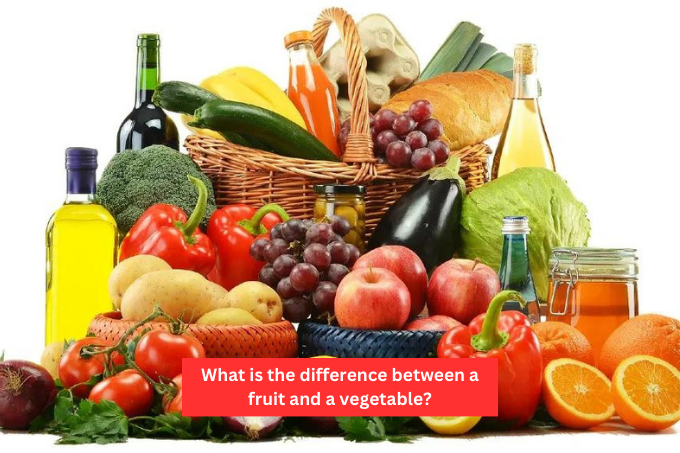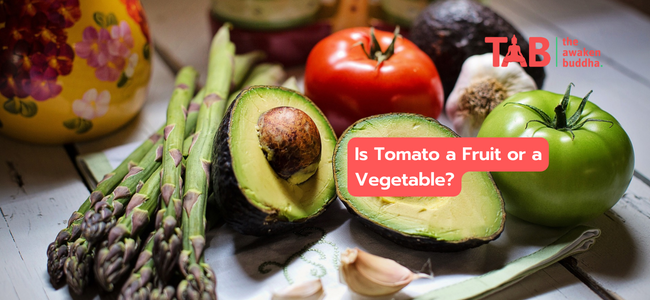Is Tomato a Fruit or a Vegetable?

Tomato is a widely used ingredient in cooking, but the answer is unclear regarding whether it is a fruit or a vegetable. Botanical speaking, a tomato is a fruit because it evolves from a flowering plant’s ovary and contains seeds. However, tomatoes are often considered a vegetable in culinary terms due to their savory flavor profile and everyday use in savory dishes.
The confusion over whether tomatoes are a fruit or vegetable stems from the different definitions of the two terms. Botanically, a fruit is defined as the mature ovary of a botanical plant, typically containing seeds. By this definition, tomatoes and other commonly called “vegetables,” such as cucumbers, peppers, and eggplants, are all fruits.
However, in the culinary world, fruits are typically sweet and used in desserts, while vegetables are savory and used in main dishes or as side dishes. Tomatoes, with their tangy flavor and everyday use in savory dishes such as salads, sauces, and soups, are often considered vegetables in the culinary sense.
The debate over whether tomatoes are a fruit or vegetable reached the United States Supreme Court in the 1893 case Nix v. Hidden. The court ultimately ruled that tomatoes should be classified as vegetables for customs regulations, as they were commonly used in savory dishes rather than desserts.
Whether you consider tomatoes a fruit or a vegetable, there’s no denying their versatility in the kitchen. Tomatoes can be eaten raw or cooked and used in everything from salsa to pasta sauce to pizza toppings. They’re also a great source of vitamins C and K, potassium, and antioxidants.
In conclusion, while tomatoes are technically a fruit according to the botanical definition, they are often considered a vegetable in the culinary world due to their savory flavor profile and everyday use in savory dishes. Regardless of their classification, tomatoes are a delicious and nutritious ingredient that can be enjoyed in various dishes.
Why are tomatoes fruit?
Tomatoes are classified as a fruit because they meet the botanical definition of a fruit. According to botanists, a fruit is the mature ovary of a flowering plant that contains seeds. In the case of a tomato, the flower is pollinated, and the ovary at the base of the flower develops into a fruit containing seeds.
Botanically speaking, fruits result from fertilization and contain seeds, while vegetables are any edible part of the plant, such as leaves, stems, and roots. By this definition, tomatoes are classified as a fruit, along with other fruits such as apples, bananas, and grapes.
However, tomatoes are often considered a vegetable in culinary terms due to their savory flavor and everyday use in savory dishes. This is why the debate over whether tomatoes are a fruit or vegetable is so contentious – there are different definitions for the two terms.
Whether you consider tomatoes a fruit or vegetable, they are versatile and nutritious ingredients that can be used in various dishes. Tomatoes are a good source of vitamins C and K, potassium, and antioxidants and can be eaten raw or cooked in various ways.
What is the difference between a fruit and a vegetable?

The difference between a fruit and a vegetable comes from their botanical and culinary definitions.
Botanically speaking, a fruit is the mature ovary of a flowering plant that contains seeds. This means that fruits are the result of fertilization and contain seeds. Common examples of fruits include apples, bananas, grapes, and tomatoes.
On the other hand, vegetables are any other edible part of a plant that is not a fruit. This can include leaves, stems, roots, and other plant parts. Examples of vegetables include carrots, lettuce, broccoli, and potatoes.
In culinary terms, the definition of fruits and vegetables is often based on their taste and how they are used in cooking. Fruits are typically sweet and used in desserts or as a snack, while vegetables are savory and used in primary or side dishes. For example, a tomato is considered a fruit botanically. Still, it is often considered a vegetable in culinary terms due to its savory flavor and everyday use in savory dishes such as salads and sauces.
The distinction between fruits and vegetables can be confusing because of the different definitions used in botany and culinary terms. However, understanding the botanical definition of a fruit as the mature ovary of a flowering plant that contains seeds can help clarify the difference between the two.
Conclusion
So, is a tomato a fruit or a vegetable? The answer is both, depending on the context. Botanically, it’s a fruit, but it often behaves like a vegetable in the culinary world. This delightful contradiction adds to the charm and versatility of the tomato, making it a beloved ingredient in countless dishes worldwide.
FAQs
1. Can you grow tomatoes at home?
Absolutely! Tomatoes are one of the most popular home garden crops. With the right care, you can enjoy homegrown tomatoes all summer long.
2. Are there any tomato varieties that taste sweet like fruit?
Yes, cherry tomatoes are known for their natural sweetness and are a delightful snack.
3. What’s the best way to store tomatoes to keep them fresh longer?
Store ripe tomatoes at room temperature and only refrigerate them once cut.
4. Can you make desserts with tomatoes?
Some adventurous chefs have created desserts using tomatoes, exploring their sweet side.
5. Is it easy to differentiate between fruits and vegetables in the botanical world?
Not always. The classification can be complex, as it depends on various botanical factors and culinary traditions.








